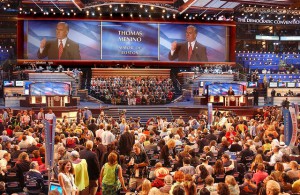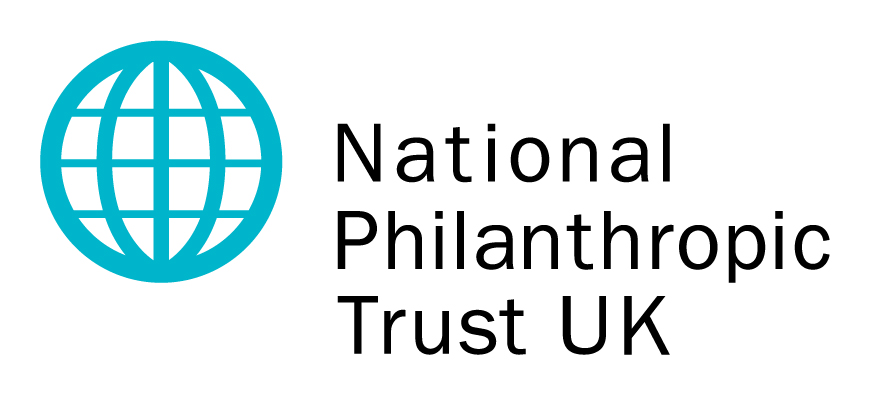President Obama’s doctrine of “leading from behind” has been disastrous for the standing of the world’s superpower, undermining and confusing America’s allies while emboldening the enemies of the free world, from ISIS to Iran. CapX’s editor, Iain Martin, put it well in his latest newsletter, arguing that Barack Obama’s successor “will need a proper foreign and defence policy.”
The unfortunate reality is that the Obama presidency has failed to put forward a coherent strategy for advancing American leadership, opting instead for a jumbled patchwork approach, couched in meaningless terms such as “smart power”. It has all too often substituted PR-friendly soundbites for substance. The next American president must be willing to unapologetically lead his/her nation in the face of an array of growing global challenges, with a clearly defined vision, one that encompasses big picture strategic foresight with firm resolve backed up by military power.
Despite a period of avoidable decline over the past six and a half years, the United States remains the world’s best hope for freedom in the world. As Margaret Thatcher declared in a speech to the National Press Club in Washington just after the end of the Cold War, “in the modern world, only the United States has the capacity and the generosity of spirit to lead on the required scale.” With just over 18 months to go until the 45th US president enters the Oval Office, here are ten recommendations for advancing robust American leadership on the international stage
1. Implement a clear strategy for defeating ISIS
Last week’s barbaric massacre of dozens of tourists (most of them British) at a beach resort in Tunisia at the hands of an Islamist gunman was a harsh reminder of the immense evil the West and the free world continues to face in the form of ISIS, as well as from other Islamist terror groups, including the al-Qaeda network. At the G7 summit, President Obama openly admitted (again) that he has no strategy for defeating ISIS, with US policy at present mired in hesitancy and confusion. The president seems committed only to doing the bare minimum possible to combat ISIS in Iraq and Syria. The next leader of the free world will face a stark choice: invest in a winning strategy for defeating ISIS, in the Middle East, North Africa and in Europe, or allow the forces of barbarism to hold sway over tens of millions of people, creating a launch pad for terrorist attacks on the West. Nothing short of the emphatic crushing of ISIS will suffice, and that will involve a far greater military commitment by the United States, as well as by its key allies, including Great Britain, to winning the war.
2. Recognise the ideological nature of the Islamist threat
It is impossible to effectively confront and defeat an enemy if you are not willing to identify it. The Obama administration has steadfastly refused to identify ISIS in terms of ideology, preferring to call them “extremists” rather than acknowledging the Islamist fundamentalist theology that lies behind it. The next US president would do well to study David Cameron’s take on this issue. In contrast to President Obama, the British Prime Minister clearly identifies Islamist ideology as the root of the ISIS threat, as he did in his recent address in Bratislava. He also calls on Muslims to do more to stand up to the Islamists, and to stop blaming Western governments. The Obama administration has been in complete denial over the nature of the Islamist threat – it is time for a new president to issue a wake-up call in the White House.
3. Prevent Iran from becoming a nuclear weapons power
The US government, as well as the other members of the P5+1 Group (the United Kingdom, France, Russia, China and Germany, facilitated by the European Union), have been pushing hard for a negotiated settlement with Iran over its nuclear program, in the face of strong opposition from Israel and America’s Gulf allies, including Saudi Arabia, Jordan and the United Arab Emirates. There is nothing in the proposed deal, however, that offers any concrete guarantee that Iran will not emerge as a nuclear weapons power, and allows Iran to retain its illegal nuclear facilities. It is largely a high risk, faith-based exercise, that places a great deal of trust in the word of a dangerous rogue regime that has pledged to wipe Israel off the map, and continues to act as the world’s biggest state sponsor of international terrorism, while brutalising its own people. The lifting of sanctions against Iran will be a huge mistake, pouring potentially billions of dollars back into the coffers of the Islamist theocracy. If the Iran deal goes through, the next US president will be faced with an emboldened Tehran in a significantly stronger position, and will need to pick up the pieces from a weak-kneed policy of appeasement – by rebuilding international sanctions, strengthening missile defences, and shoring up US allies directly threatened by Iran.
4. Stand up to a resurgent and menacing Russia
One of the biggest foreign policy follies of the present US administration has been the “Russian reset”, engineered by then Secretary of State Hillary Clinton. The much-touted reset button was left in flames following Russia’s invasion of Ukraine, and its subsequent occupation of Crimea. While Putin has been flexing muscle in Eastern Europe, the Obama administration has been slow to respond, and has largely been a deer in the headlights. The next US president must respond more forcefully to Russian aggression, and implement a clear-sighted strategy aimed at deterring Russian ambitions while shoring up NATO allies in the shadow of the Russian bear, especially the Baltic States. This must include the projection of military strength in Europe, breaking the dependency of European countries on Russian energy supplies by lifting restrictions on the export of natural gas, further steps to isolate Putin on the international stage (including withdrawing from the New START Treaty, and tougher sanctions against Putin’s henchmen, with the imposition of visa bans and the freezing of financial assets.
5. Strengthen America’s partnerships and alliances
America’s next president must make the restoration of key US partnerships and alliances a leading priority. The Obama administration has an extraordinary track record of insulting US allies, from failing to send a single serving official from Washington to attend Lady Thatcher’s funeral in London to referring to a Nazi death camp in Poland as a “Polish death camp.” America’s closest ally in the Middle East, Israel, has been frequently treated with disdain and even outright hostility, with US-Israeli relations plummeting to its lowest level in decades. The Anglo-American Special Relationship has not been helped by the Obama presidency’s decision to actively side with Argentina’s call for a UN-brokered negotiated settlement over the Falklands. America’s Gulf allies have been completely sidelined over the drive to negotiate a nuclear deal with Iran, and their concerns categorically dismissed. At the same time, US allies in Eastern and Central Europe are increasingly nervous that Obama’s “leading from behind” approach is leaving them vulnerable to Russian aggression.
6. Embrace Brexit
The Obama administration is expending a good deal of effort in warning the British people that Brexit would be terrible for Britain and for America too. As I’ve written previously, the opposite is the case. A British exit from the European Union will not only advance Britain’s prosperity but that of the United States as well through a US-UK free trade area. Contrary to the scaremongering coming from the White House and State Department, it is in America’s interest to have a self-confident, truly sovereign Great Britain that is free to shape its own destiny and stand alongside the United States when it chooses to do so. If Britain does break free of the shackles of the EU, the next US president should welcome and embrace this decision, and do all he/she can to ensure that the Special Relationship and trade and investment between the US and UK is further strengthened.
7. Support sovereignty and self-determination in Europe
For decades, successive US administrations have supported the idea of ever-closer union in Europe, and have been complicit in the building of a federal Europe, in the belief that an economically and politically unified Europe is good for American security and interests. As Greece teeters on the edge of bankruptcy, and the entire European Project begins to crumble, it is time for the United States to adopt a different approach to Europe, one that both recognises reality and reflects the American people’s love of freedom and self-determination. America is far better off with a Europe that promotes sovereignty over supranationalism, that advances democratic accountability over unelected bureaucracies and which looks outward to the world rather than inwards.
8. Promote economic freedom, at home and abroad
President Obama’s successor must be willing to champion economic freedom in Europe and across the world. After all, the European Union’s decline has marched in concert with the rise of big government, huge unfunded pension liabilities, unsustainable levels of government spending and debt, rising taxes, and mountains of red tape tying up businesses. Unfortunately, the United States is itself increasingly resembling the Eurozone in terms of economic policy, with a significant drop in economic freedom in the last few years. According to the 2015 Heritage Foundation/ Wall Street Journal Index of Economic Freedom, the United States now ranks 12th in the world, and has been categorised as “mostly free” since 2010. Under the Obama presidency, America’s federal government debt has risen to more than $18 trillion, with US federal debt increasing from 40 percent of GDP at the end of 2008 (just before George W. Bush left office) to more than 70 percent by the end of 2012 (by CBO figures). America’s next president will have to rein in bloated social spending, cut corporate and individual taxes, and implement much needed entitlement and welfare reforms, if America is to avoid the same fate as big government Europe.
9. Invest in America’s defences
President Reagan demonstrated that having a strong defence was the best deterrent to potential aggressors, and set about rebuilding America’s defensive capability in the wake of the Carter years and post-Vietnam decline. It was the strength of the United States military, including the development of the Strategic Defence Initiative (SDI) that was pivotal to the collapse of the Soviet Union at the end of the Cold War, convincing the Russians that there was no way the US could be beaten militarily. In recent years, despite a rising threat posed by Islamist terrorist groups as well as state-based actors including Russia, North Korea and Iran, America’s national security budget has fallen by 15 percent. At the same time, many US NATO allies have also been cutting defence spending, sending the wrong signal to the West’s enemies. In order to meet the challenges faced today, the next US president must be willing to commit the resources necessary to ensure that the United States is equal to the task.
10. Believe in American exceptionalism
No US president has apologised more for his own country on the international stage than President Obama. He has even argued that American exceptionalism is no different to that of other nations, including Greece. His successor in the White House should be unafraid to robustly advance American leadership on the world stage, without apology or fear of the court of international opinion. International leadership is not a popularity contest or an exercise in national contrition. Whoever walks into the Oval Office on January 20, 2017, should remember the moving words of Sir Winston Churchill, who asked, with tears swelling in his eyes when he visited New York as prime minister in 1952, paying tribute to the exceptional spirit of the American people:
“What other nation in history, when it became supremely powerful, has had no thought of territorial aggrandizement, no ambition but to use its resources for the good of the world? I marvel at America’s altruism, her sublime disinterestedness.”
Nile Gardiner is the Director of the Margaret Thatcher Center for Freedom at the Heritage Foundation in Washington, D.C.







